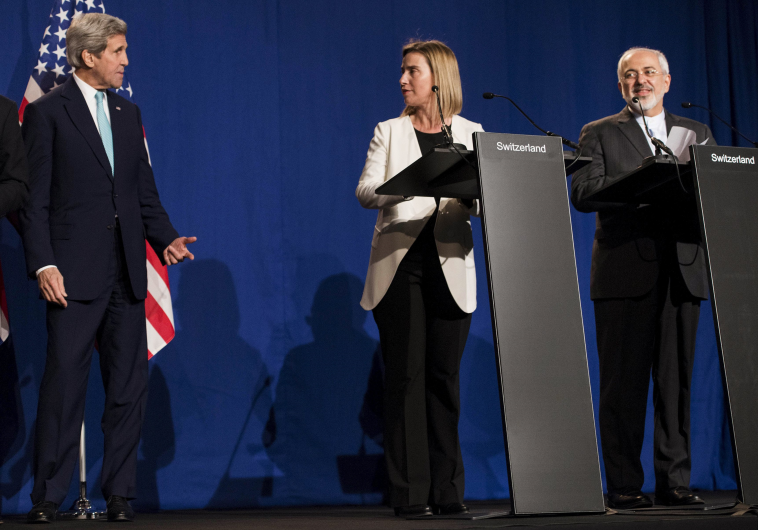Pushing a nuclear deal in New York, far from prying eyes
Camelia Entekhabi-Fard/Al Arabiya
Tuesday, 29 April 2015
Seventy years after the Hiroshima and Nagasaki bombings, a major push is under way to prohibit nuclear weapons globally. As 190 government members gathered in New York on Monday April 27 for a Review Conference of the Nuclear Non-Proliferation Treaty, there is so much doubts if this wish can become reality.
“The five nuclear-weapon states have shown little interest in actual disarmament, and all of them are undergoing significant modernization programs” says Beatrice Fihn, executive director of ICAN (International Campaign to Abolish Nuclear Weapons) said. “People might think the arms race is over, but instead of more warheads, the race has become about developing more advanced nuclear weapons,” she added.
While the issue of Iran’s nuclear program has dominated headlines, the present U.S. Secretary of State John Kerry and Iranian Foreign Minister Mohammad Javad Zarif met in what was considered a highlight.
We still cannot imagine a U.S. embassy opening in Iran and American diplomats quartering in Tehran. Secretary Kerry on Monday paid a visit to the Iranian U.N. ambassador’s residence in Manhattan with his Undersecretary Wendy Sherman. While both are eager to reach the nuclear deal, there is no rush or any talk about normalizing relations at all. We still cannot imagine a U.S. embassy opening in Iran and American diplomats quartering in Tehran.
Limitations
This is not what Supreme Leader Ayatollah Ali Khamenei is wishing for, let alone the hardliners who are against the nuclear talks regardless of its economic benefits to the nation. Even the comprehensive nuclear deal doesn’t mean the U.S. investors are welcoming to Iran directly. They are mainly conservatives and hardliners in Iran who still can’t trust Americans, regardless of the nuclear talks. Ayatollah Khamenei said that if the nuclear talks are solved with openness and honesty, Iran may be open to other topics of discussion. We don’t know what such topics could be but clearly there is a long way to go before embassies are opened on each other’s soil.
Complex talks
Kerry said earlier on Monday that he will use a meeting with his Iranian counterpart to urge Iran to push the Shiite rebels it supports in Yemen back to the negotiating table. This is the first time that the two have spoken on an issue other than the nuclear talks. As much as Iran is getting closer to the nuclear deal deadline on July 1st, its regional and international obligations to act as a countable member of the international community is increasing a good example of this is Kerry’s statement on the Yemen crisis.
“We are, in fact, closer than ever to the good, comprehensive deal that we have been seeking, and if we can get there, the entire world will be safer,” John Kerry told the 191 NPT parties on Monday at the United Nations. Zarif spoke on behalf of NAM ( Non Aligned Movement, which represents 120 countries), and will speak on April 28 on behalf of the state of Iran.
Iran’s negotiating team is to stay in New York for a while since the NPT conference is ongoing for a month. Upon Zarif’s arrival in New York, he told Iranian state TV: “Besides taking part in the conference, we have come here to listen to the Americans.” For sure, the NPT conference is a great opportunity for Iran and the U.S. to solve the remaining issues before the deadline and to listen to each other far from prying eyes and ears.




















